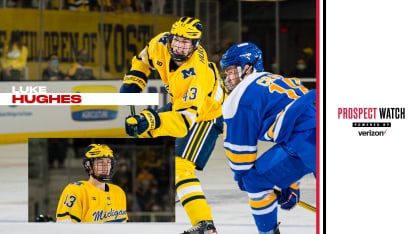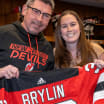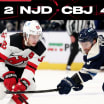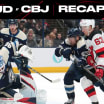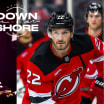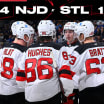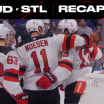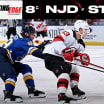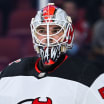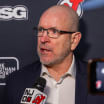When the family wasn't in rinks, much of the holiday season was spent during those years watching the World Junior. It dominates the airways in Canada in much the same way college bowl season does at the same time of year in the U.S.
"I lived in Canada for a long time… as an American there were a lot of proudful moments," he recalled, "I remember when (John) Carlson scored (in overtime) on that 2-on-1 (to beat Canada in 2010)."
That U.S. victory was the first of three American gold medal wins over Canada at home. The Americans also won in Montreal in 2017 and in the Edmonton bubble last year, a feat the U.S. will try and replicate this time around but with fans in attendance.
While much was made of the perception that the U.S. upset Canada in last year's final, the reality was that that collection of American players was among the best assembled by the national team program.
The remarkable U.S. win could be more accurately described as a talented cohort - minus Jack Hughes - coming together at the right time to defeat Canada, who were loaded from top-to-bottom with first-round NHL draft picks, a group that included Dawson Mercer.
Jack Hughes remained eligible for last year's tournament but was playing in the NHL. Brothers Jack and Quinn won a silver medal together in Vancouver in 2019.
One of this year's themes will be the presence of Hughes and his Michigan teammates that are expected to be spread across the U.S. and Canadian rosters. Five Wolverines earned a 31-player preliminary roster spot announced last week by USA Hockey. That group includes Hughes and Matty Beniers (Seattle), who was a member of last year's championship squad.
Barring injury, Owen Power (Buffalo) and Kent Johnson (Columbus) are expected to play leading roles for Canada. Power, Beniers, Hughes and Johnson were four of the five top picks in last summer's NHL Draft. Mason McTavish (Anaheim) was the third-overall selection and is expected to key the Canadian forwards, along with Shane Wright (Kingston Frontenacs), the expected No. 1 overall pick in this year's draft.
Watching last year as a member of the ultra-successful USNTDP, Hughes at the time was focused on the upcoming World U18s that took place in Dallas last spring. Injury eventually ended Hughes' season and the U.S. exited in the quarter-finals without him.
Like brother Jack, it could be his only opportunity to play in the World Junior if he turns pro next season.
"I just want to show them the best version of me," he said.
As is custom, Finland, Russia and Sweden are all expected to have strong squads this year.
The Devils have not yet made a decision on Alexander Holtz. If the Swedish forward is released to play, he will have a leading role in his country's effort to improve upon its quarter-final exit last year
Canadian forward Chase Stillman (Sudbury Wolves) and Hughes's Michigan teammate, fellow defenseman Ethan Edwards, were considered for their country's final evaluation camp but ultimately didn't get an invite that went to 35 players.
Stillman's case was hurt by being in Covid protocol after there was an outbreak on the Wolves roster.
"There were many, many good players who we couldn't invite," said Team Canada team management lead James Boyd earlier this week.
Boyd, who helped develop Devils prospects Kevin Bahl, Graeme Clarke and Nikita Okhotyuk in his role as GM of the Ottawa 67's, acknowledged that there were logistical hurdles brought on by the pandemic in evaluating his national team player pool.
The U.S. open play against Slovakia on Dec. 26. Russia, Sweden and Switzerland make up the rest of that pool that is based in Red Deer.
Austria, Canada, Czech Republic, Finland and Germany make up the other group and are based in Edmonton.
Rosters have been expanded this year to 25 players, in part because of potential pandemic issues.
